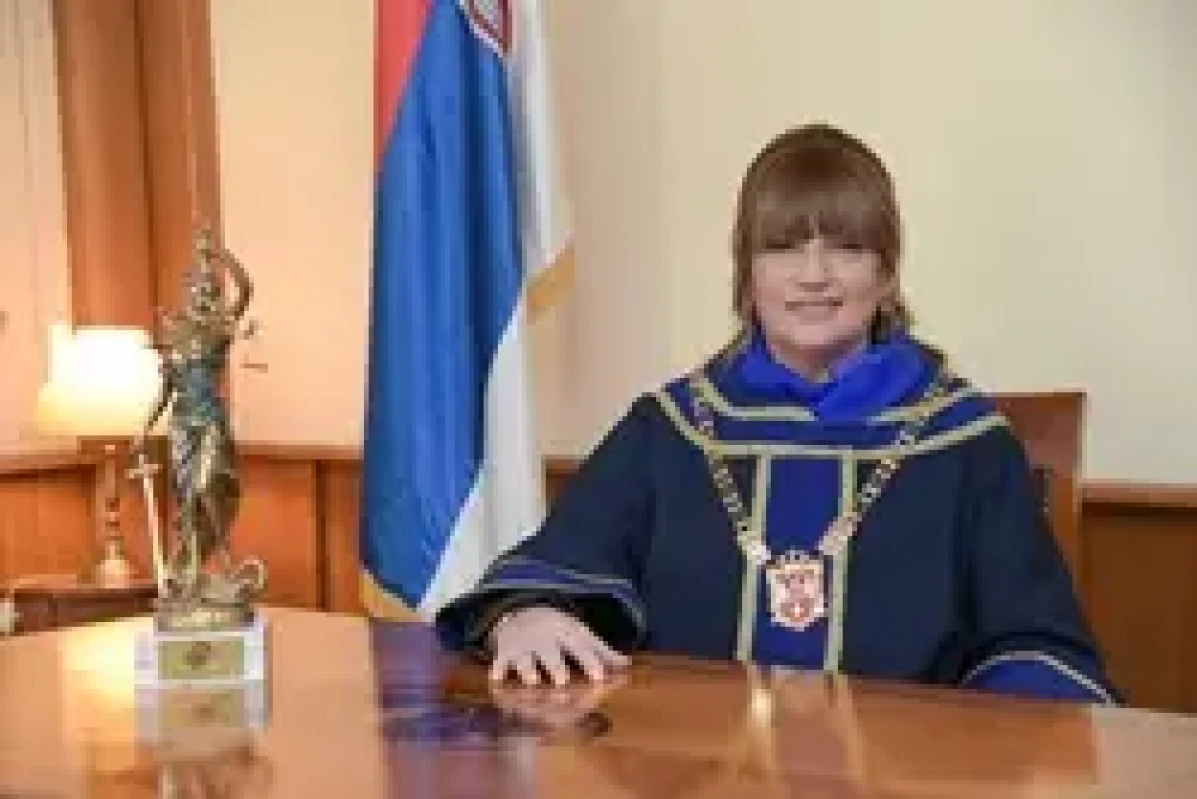14. Feb 2024.

Snežana Marković was born on 29 April 1959, in Kragujevac. She completed her primary and secondary education, and graduated from Kragujevac Faculty of Law with honours. In 1985, subsequent to completing her internship at the Kragujevac County Court, she passed her bar examination.
On 12 July 1988, she was appointed as a judge of the Kragujevac Municipal Court by the Town Council of Kragujevac, where she acted as the president of extra-contenscious chamber, president of contentious chamber, president of the chamber specilising in family law area, marital property, property relations, deputy president of the Municipal Court, subsequent to which she was appointed as the Kragujevac County Court judge in the capacity of the president of the first instance criminal chamber.
In December 2002, she was appointed by the National Assembly of the Republic of Serbia as a Deputy Republic Public Prosecutor, where she remained until she has been appointed as a Constitutional Court Judge.
In the Republic Public Prosecutor's Office she served at the civil - administrative section, which she presided.
By the Ministry of Justice and State Administration ruling of 12 December 2012, she was appointed a member of the bar examination commission for the subject Commercial Law, and she still acts in this capacity. By the ruling of 28 March 2013 of the same ministry, she was appointed a member of the examination commission for the notary public examination and since then has been acting in this capacity.
By the ruling of the Ministry of Justice and State Administration of 17 January 2014, she was appointed a member of the competition commission for appointing the Republic of Serbia judge to the European Court of Human Rights.
She was a member of the working group for drafting the Law on Amendments to the Law on High Judicial Council and the Law on Amendments to the State Prosecutors Council, a member of the working group for drafting the Law on Attorney General, a member of the working group for creating an assessment and analysis of the state of affairs for dealing with legal and infra-structual issues related to courts and public prosecution, a member of the working group for drafting the Law on Amendments to the Law on Deprivation of Property due to a criminal offence. By the decision of the State Prosecutors Council, she was appointed a member of the Judicial Academy Managing Board, and by the decision of the Judicial Council, she was appointed a member of the Working group for drafting the Notaries Public Plan and Programme.
As a representative of the Republic Public Prosecution delegation of high officials, she took part in the official visit to the Russian Federation in Moscow, in the official visit to the Judicial Academy in Lisbon, Rome and in other delegations.
Her entire professional career has been related exclusively to the work in judicial bodies - regular courts from 1984 to 2002 and the prosecution - the Republic Public Prosecution 2003 - 2016.
On 9 March 2017 she was elected Vice President of the Constitutional Court.
On 26 December 2019 she was elected President of the Constitutional Court, commencing duty on 26 January 2020 when her duty of the Vice President of the Constitutional Court expired.
She was re-elected as President of the Constitutional Court on 8 December 2022. She assumed the position of President on 26 January 2023.